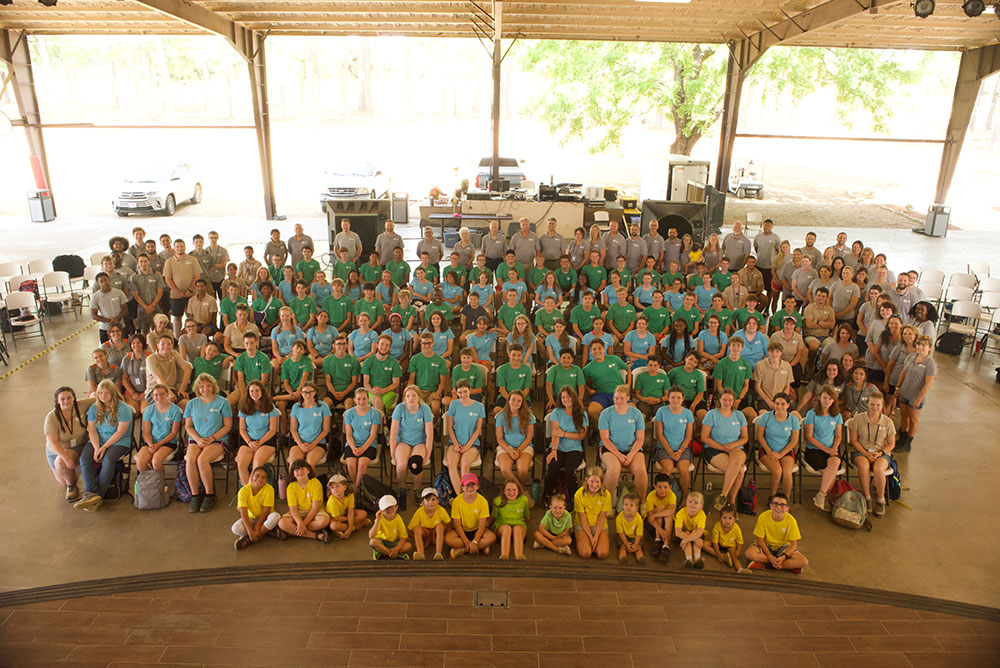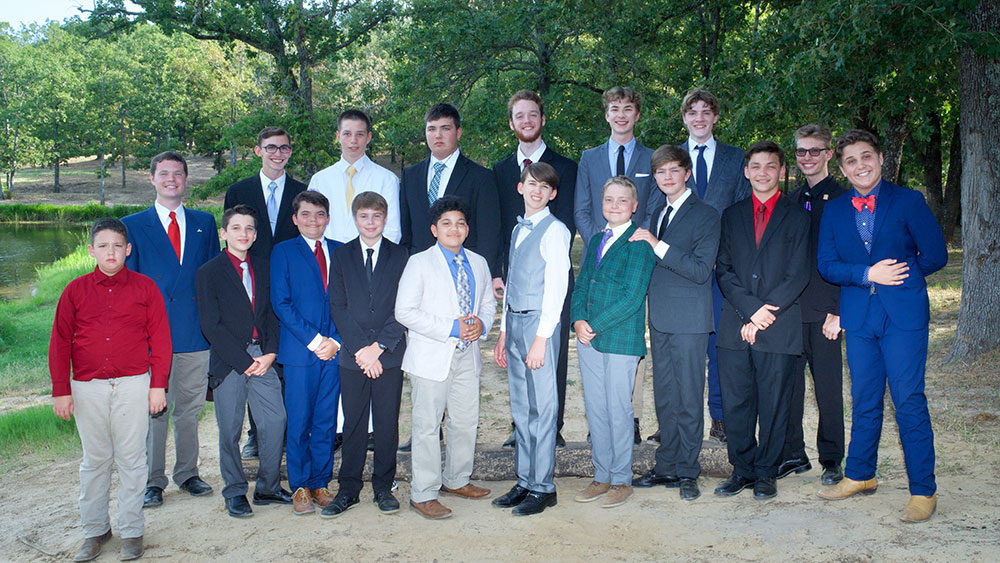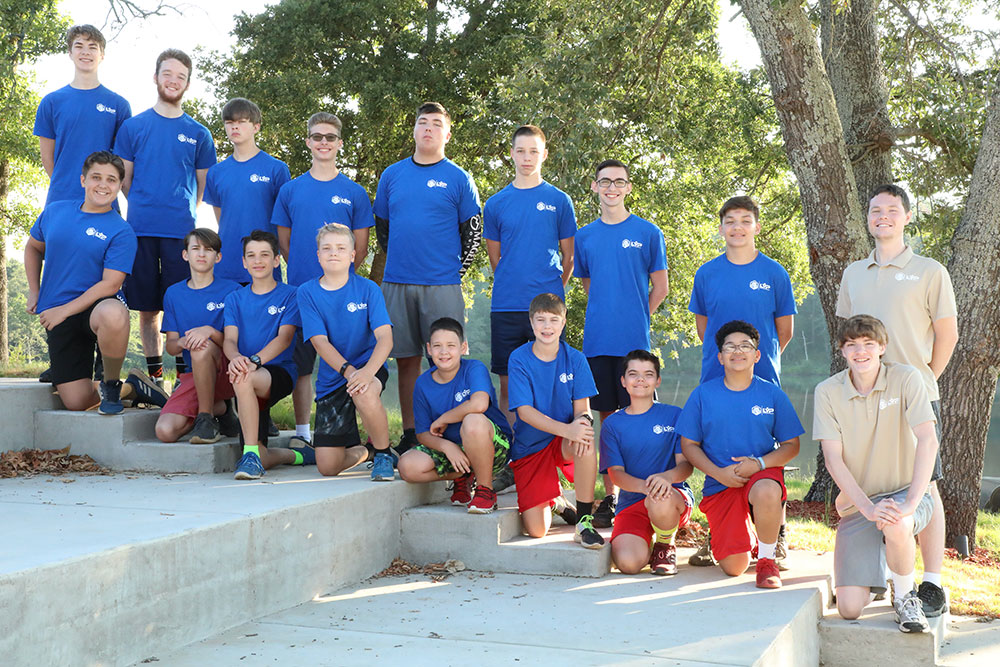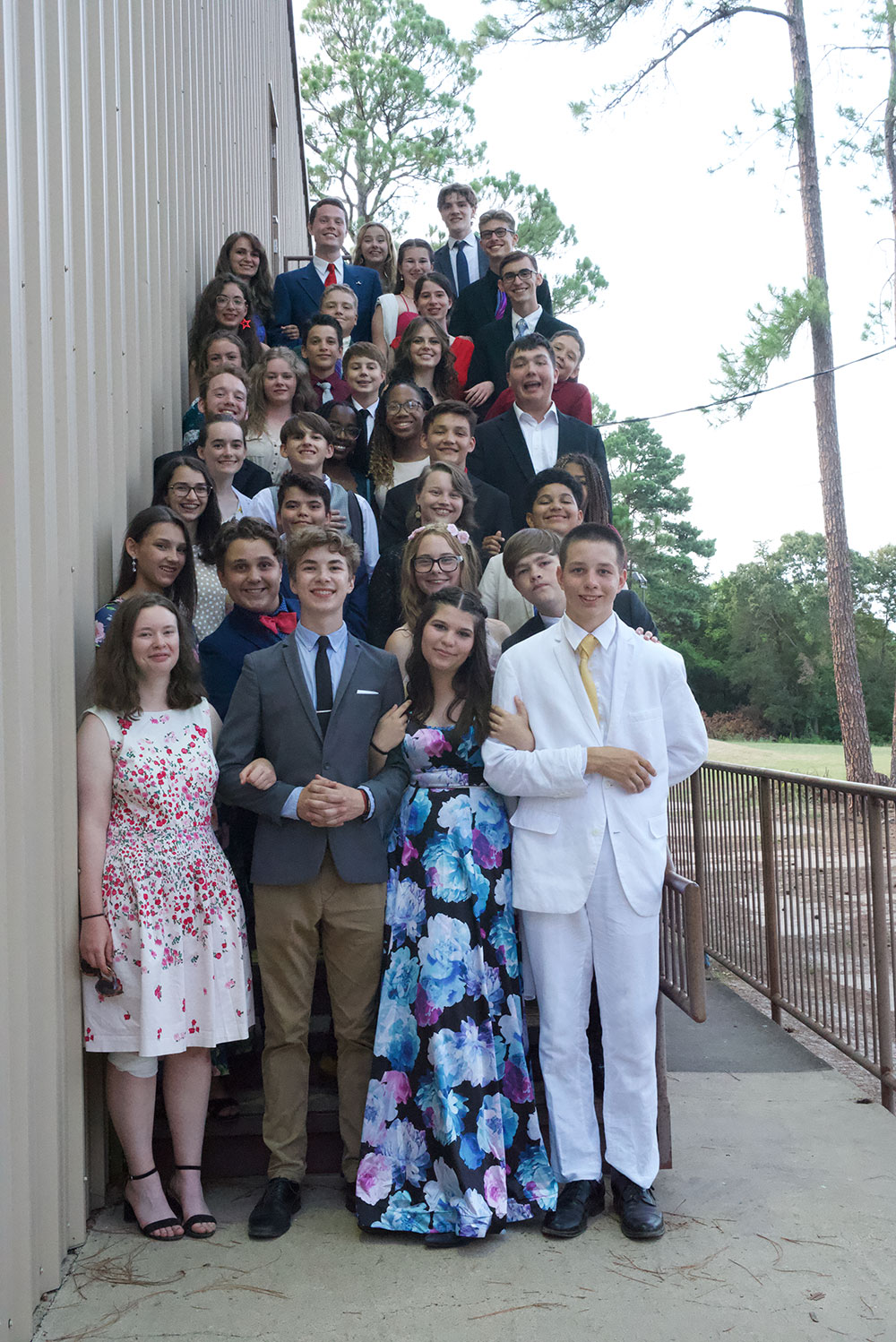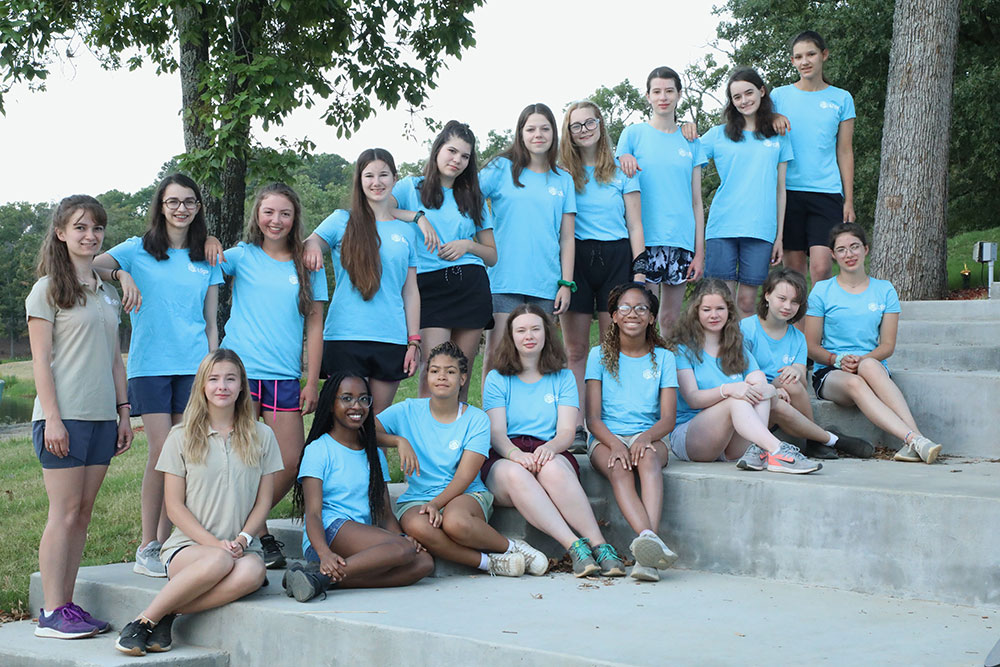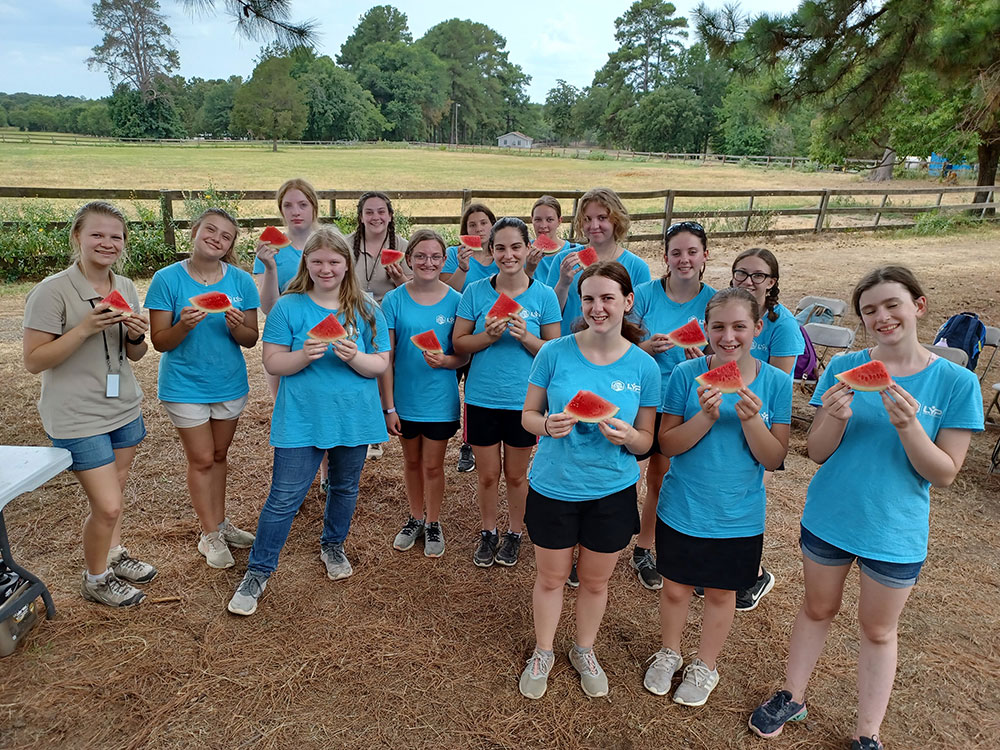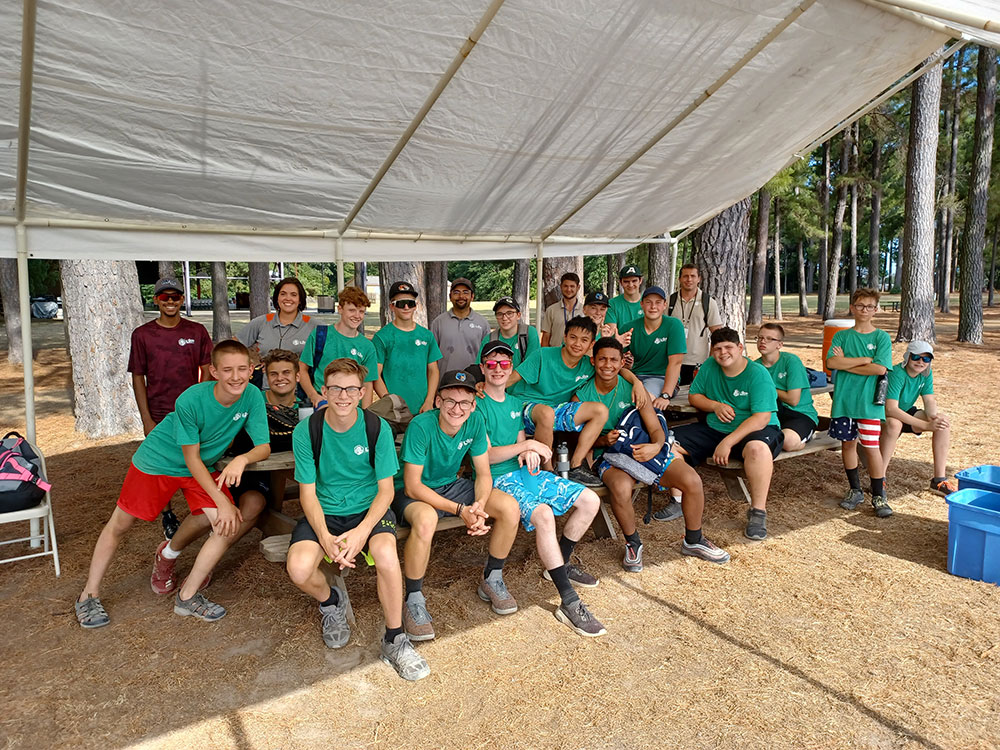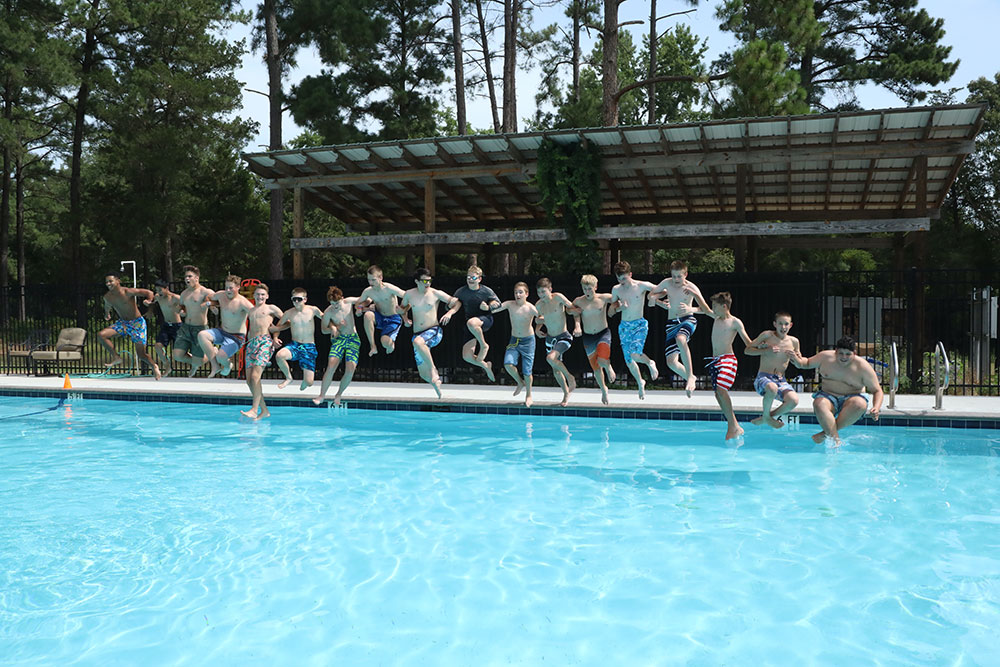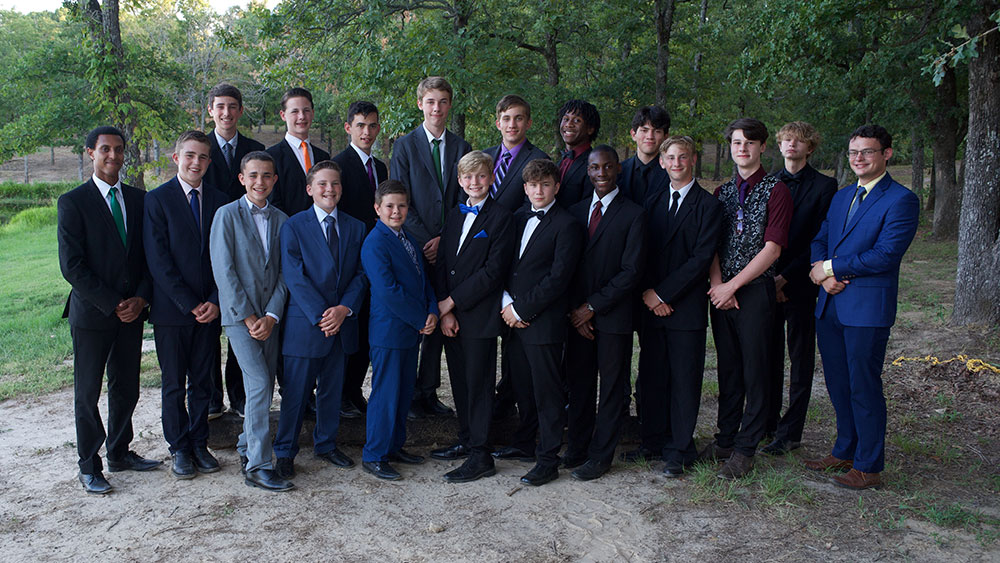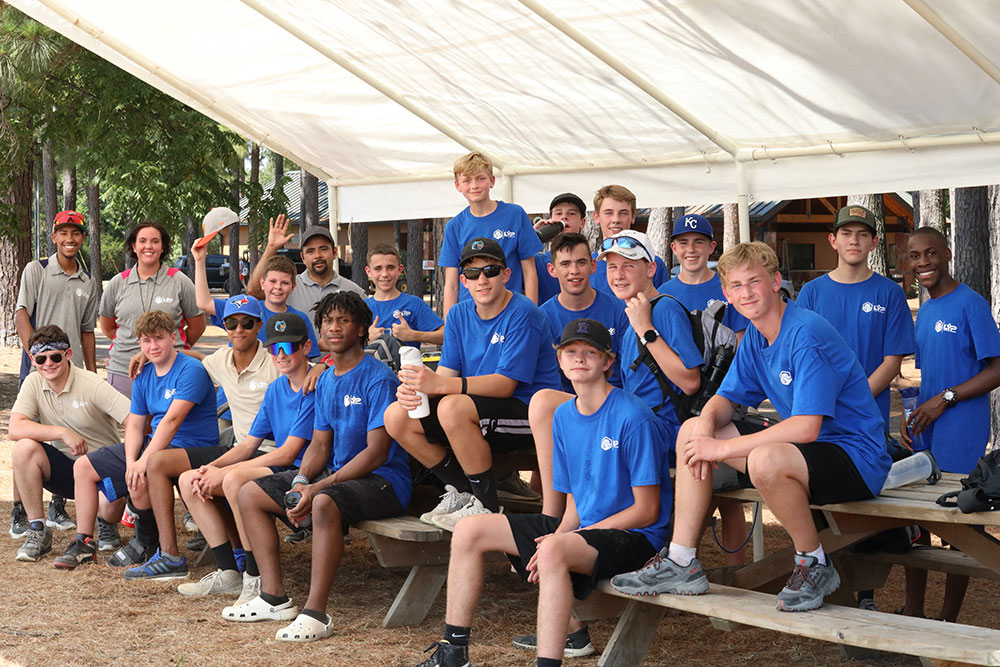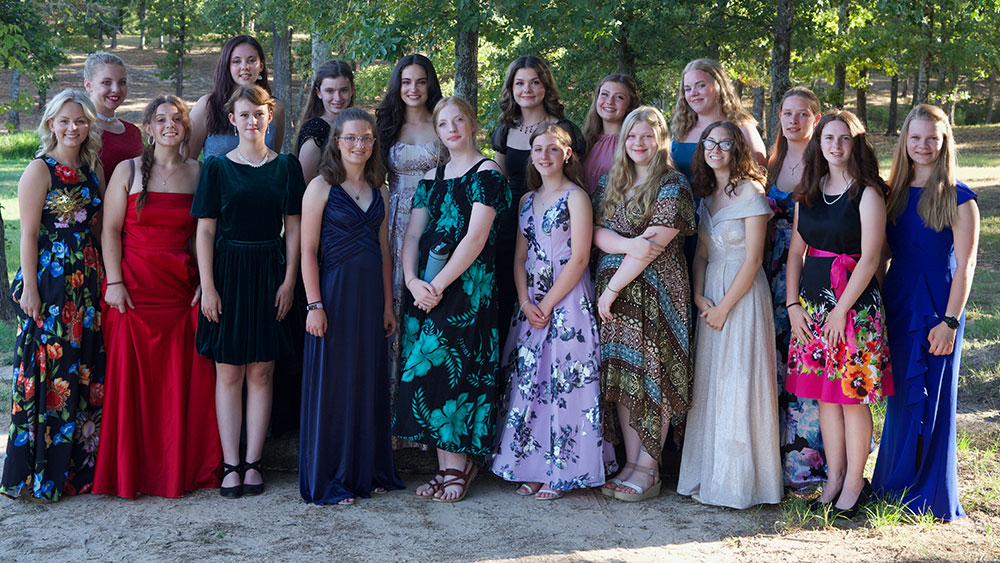As the Radio Church of God grew during the twentieth century, it was recognized that there was a need to do something to help guide Church youth through an increasingly corrupt culture. So, a summer camp for teens was started in 1962. Several of those pioneer campers are still around, including my wife. To a degree, camp in those early years was more like boot camp. Campers “fell out” at 6:00 a.m. for morning exercises, inspections were exacting, and swats were given out as discipline for infractions. Camp is very different today!
It is easy to look back and wonder how camp could have been so demanding, but we are unwise to take any situation out of the historical and cultural context of its day. Most of those early camp leaders had either served in the military during World War II or had been influenced by those who had. Swats, inspections, and marching were also common then in the Boy Scouts, in which I participated before learning God’s truth. It was a different world back then, and it was not as bad as it may sound to people today. Camp that first year lasted eight weeks and many campers returned for a shorter six-week camp in the following year, even with 100-degree weather and housing in booths with no air conditioning! Sports, dances, and other activities contributed to innumerable lasting friendships.
The camp was moved from Texas to Orr, Minnesota, in 1965, and over the next several years it became recognized that a summer camp was not sufficient by itself to “keep the youth in the Church.” With the best of intentions from dedicated and sincere individuals, a program called Youth Opportunities United (YOU) was begun. Many ministers were young and athletic, so a basketball program was started for boys and a volleyball program for girls. Young adults also formed teams, with different congregations challenging one another. Tournaments began to be organized, with regional participation. These were great fun—but expensive, as facilities for practices and games had to be rented. Tournaments meant that families were burdened with the expenses of travel, meals, and motels, along with more demands on time.
Some areas had well-organized programs with good sportsmanship, but good sportsmanship began to deteriorate in other areas, and instead of drawing youth from different Church congregations closer together, the program was often divisive. This was not true everywhere, but was true in too many locations. Angry disputes and hurt feelings became increasingly common, whether at basketball and volleyball tournaments in the United States or hockey tournaments in Canada.
I grew up playing organized baseball, football, and basketball, and ran the quarter-mile on my high school track team. I also took swimming lessons, which became my ticket to involvement with the Church summer camps. It was natural for me to be a big supporter of these sports events. But, as time went by, I became disillusioned by the fruits I was seeing in the later years of the YOU program. It was not all bad, but bad fruit was showing.
I was also a big supporter of the Summer Educational Program, serving nine years at the camp in Orr, Minnesota, and one year in Big Sandy, Texas. The value of this experience is difficult to overestimate, especially the years serving under Dr. Kermit Nelson from 1987 to 1994.
A New Beginning
When I joined the Global Church of God in early 1995, I was asked to help start a summer camp program under our Presiding Evangelist, Dr. Roderick C. Meredith. Our first camp was at Lake of the Ozarks, Missouri, and many campers thought it was a great success—but from an administrative perspective, it was not. Staff were untested and untrained. To begin to remedy the problem, we started training and testing high-school-aged staff for the purpose of selecting future leaders.
After God purged the Church of some disloyal ministers and members in GCG, Mr. Lambert Greer and I were asked to oversee the Living Church of God camp in 1999. The two of us, along with Messrs. Jonathan McNair, Paul Shumway, and others, took the lessons we had learned from the past and began to develop a new approach that would avoid some pitfalls from previous programs and activities. We recognized that we could not put “new wine into old wineskins” (Luke 5:36–39).
At an August 2000 Council of Elders meeting, I presented a vision for a new approach. The gist of it acknowledged that some past approaches had not produced the hoped-for results. Without realizing it, and with the best of intentions, we had tried to “keep teens in the Church” by providing exciting activities for a few weeks. During the 21-day sessions at Orr, Minnesota, the emphasis was very much on the physical, and we had great physical facilities and programs—we had water skiing, rock climbing, canoeing into the wilderness, basketball, volleyball, softball, swimming, water polo, parasailing, and so much more. I have little doubt that many teens equated “God’s way works” with activity and fun. But what happens when the fun ceases?
The Summer Educational Program was a bit light on working with the mind and spirit. These points were not totally neglected, but to the minds of our teens they clearly must have seemed second in priority. As an example, throughout the three-week schedule we only had four Christian Living classes: “Your Relationship to Rules,” “Your Relationship with Money,” “Your Relationship with Others,” and “Your Relationship with God.” There were Sabbath services and Bible Studies, but there was a conscious and explicitly stated desire to not have a “Church camp.” There definitely was an intent to promote godly values, but there was also a desire to avoid being “too religious.”
Despite that, much good came out of those Summer Educational Programs. Although I had grown up participating in organized sports from an early age, my first year working in Orr was an eye-opener. I had never seen such well-run activities as I saw there. I learned a lot about how to run a successful activity. Between 1983 and 1999, I worked under four different camp directors and learned a lot about what works—and what does not work. I was privileged to work with some remarkably talented and intelligent men and women over the years.
Regarding the history of Church youth programs, what also became clear is that people learn to appreciate those pursuits into which they invest time and energy—it is best when they have “skin in the game,” so to speak. Our youth are best served when they learn to give back to the Church. Those young adults and high school staff who teach others the values of the program are far more likely to “buy into it” themselves. How many times I remember hearing at a morning counselors’ meeting how “different” the teens were from when the counselors themselves were teens. Yes, there may have been a few differences, but in most cases, the counselors did not realize how much they had changed. The values that had not been important to them a few years earlier had now become a part of them. As Mr. Lambert Greer rightly said, the values we teach today will not be internalized for several years.
We realize that not all young people will accept what is offered to them. We know the Parable of the Prodigal Son—two boys were raised in the same family, but while one chose the right way, the other chose a self-destructive path. The second son eventually repented and learned the right way, but by then he had been scarred and damaged, squandered his inheritance, and suffered a lot of heartache. Sadly, so it will be with some of our children.
A Mission and a Goal
Now that I’ve discussed some of the history of youth programs in the modern era of the Church of God, I want to share with you some of the principles we are restoring during Staff Orientation at the Texas Living Youth Program. One of the first points covered is our Mission Statement, formulated in the first years of our Living Youth Programs: “To bring teens together in a learning environment for the purpose of recapturing true values; and to further the creation of a culture of purity, honor, and respect among the youth within the Living Church of God.”
We apply the same principles in conducting our onsite Living Education program, as well as our Living 4 Tomorrow programs for those aged 18–30. And what do we hope to accomplish? Here is how we express our purpose in one sentence: “We expect that out of this culture of purity, honor, and respect will come godly relationships that will lead to loving marriages and strong families that will provide stability and future leadership in the Living Church of God and society as a whole.”
This mission—this goal—must be explained in detail. What is meant by a culture of purity? All our activities must be conducted with this in mind. As I wrote in the November-December 2000 Living Church News on this subject:
It is accurate to say that if you do not know where you are going, it is likely that you will not end up where you want to be. The first law of success is to have a goal. We need to have a vision of what we hope our end product will be. Our product in this case is our children. If we hope to have young adults who reflect God’s way of life, we must begin creating the atmosphere in which that end result will blossom (“Coming Soon: A National Youth Program”).
A culture is shared by members of a group, and purity is God’s way of life. Each generation is born into a world directed by Satan (Ephesians 2:1–2). We must reinforce godly values—the same values Church parents want to see in their children. A godly culture is fostered when a growing number of young people begin to internalize those values. Then, when they are around other Church youth, such as at the Feast, they can find others who strive to live by the same culturally pure values.
But what do we mean when we speak of honor? This refers to a deeply ingrained code of conduct, such as it was for Joseph when he was tempted by Potiphar’s wife (Genesis 39).
We hope our young people will create a culture in which they live by an honor code of pure godly values and a life framed by respect for others—for parents and elders, for themselves, and for one another—for their good. I often say rather forcefully, “Girls, demand respect from the boys! Don’t let them talk you into something you will later regret. And respect them in the way you dress. Boys, true love is outgoing concern. Respect these young ladies. Don’t defile your best friend’s future wife!” This is blunt, but they must hear it in an era that shows no respect and has little concern for others.
Conducting a Safe Camp
It is also important to emphasize to our staff that these are not our children. Parents send their children to camp with the reasonable expectation that they will return unharmed. It is our duty to do everything in our power to protect these children from any form of harm—physical or emotional.
We intentionally plan the teen summer camp as a highly structured program with little free time. This means we expect campers to be at certain places at certain times according to a well-planned schedule. All things are to be done decently, in order, without confusion, and in peace (1 Corinthians 14:33, 40). We explain to our staff how this is practically applied. We have three fundamental rules into which most situations fall: Don’t hurt yourself, don’t hurt others, and don’t hurt things. We strive to stop all practical joking, because it tends to escalate with retaliations, and sooner or later someone gets hurt or something gets broken.
Campers do not sit with whomever they want to during meals. Instead, we mix up the seating assignments for every meal and teach the campers to converse with and get to know everyone. We instruct them not to leave as soon as they are finished eating to go talk to someone else. When campers are allowed to sit meal after meal with their best friends, cliques form and “in crowds” develop. These dining hall policies are one mechanism by which we encourage the principle of outgoing concern—no one is to be left out.
The same principle applies to Fellowship Time. This “activity” comes a couple times each day. It is not a time to play keep-away with a younger camper’s ball cap, or pair off with your boyfriend or girlfriend—it is a time to mix and mingle. But, while we encourage “M&M,” this is a choice individuals must make. We especially encourage campers to seek out the loners or shy people and bring them into the group, and many take this admonition to heart. This is also why we have escorts rather than dates for the dances, as campers are encouraged to M&M once they arrive at a dance.
We understand teens’ desire to pair off—and, ultimately, we hope they will find that special someone with whom they will share their lives. But there is a time and place for everything, and camp is not the time for pairing off. Teens are not ready to consider marriage, and pairing off prematurely only creates problems for them. When pairing off is not discouraged, it breaks down the principles of learning to practice outgoing concern for all, and we expect staff to set the example. The morale of the whole camp can suffer due to the self-centeredness of a few.
We do not deny that individuals will have closer friendships with some than with others—even Jesus Christ was particularly close with one of His disciples, John (John 13:23; 19:26; 20:2). What we don’t want is for others to feel excluded. Is this not a biblical principle, illustrated by Christ’s instructions regarding whom to invite to dinner (Luke 14:12–14)?
The Cool Factor
When people are trying to be cool, they are thinking of themselves. When everyone is trying to out-cool others, you have a camp filled with self-centered individuals—where the cool are part of the “in crowd” and the un-cool are left trying to catch up. By not allowing faddish trends to get started, you cut down on the cool factor and self-centered thinking and promote the concept of thinking about others’ well-being.
We strive to give every camper some measure of success every day. This can happen only when staff members give personal, individualized attention. Staff members must be vigilant to find ways of helping every camper improve at least one skill. A standard we encourage is “Make someone’s day, every day.” Each camper should go to bed at night with the solid understanding and feeling of being respected, loved, and valued as an individual. Camp staff must practice servant leadership at all times.
A Pebble in a Pond
This world exerts negative peer pressure on our teens. We strive instead to harness the power of positive peer pressure. We want young people to feel safe and secure in that no one will laugh at them as they pray, sing, and talk about God and His values—things they might not feel comfortable doing elsewhere.
We do not run a sports camp, although we have sports. It is a Church camp, and we do not apologize for teaching the values and the well-established doctrines of the Living Church of God. We have Christian Living classes in the first period of every activity day—“first things first.” The evening ends with a short hymn-sing and a short story conveying a lesson that reflects values of honesty, courage, and compassion.
Trustworthiness is an absolute necessity for staff members. We all make mistakes, but if we cannot trust someone to uphold the values, traditions, and rules of camp, we have no basis on which to work with them. Example is vitally important. Every staff member will be an example. The only question is, what kind—good or bad?
We recognize that not everyone lives up to our hopes and expectations. We also make mistakes—and camp is never perfect—but I wanted to share with you a bit of the history of summer camps in the Church of God and some of the important principles and mechanisms we are using to create an atmosphere of purity, honor, and respect—the way of outgoing concern.
The value of a few courageous and understanding individuals must not be underestimated. Jesus gave the parables of the mustard seed and of leaven. Small beginnings can grow into something great (Matthew 13:31–33). We should not despise the day of small things (Zechariah 4:10). A pebble thrown into a pond sends out concentric waves. Through Living Youth Programs, Living 4 Tomorrow, and the on-site Living Education–Charlotte program, we hope to develop an ever-expanding godly culture among the youth of God’s Church.
